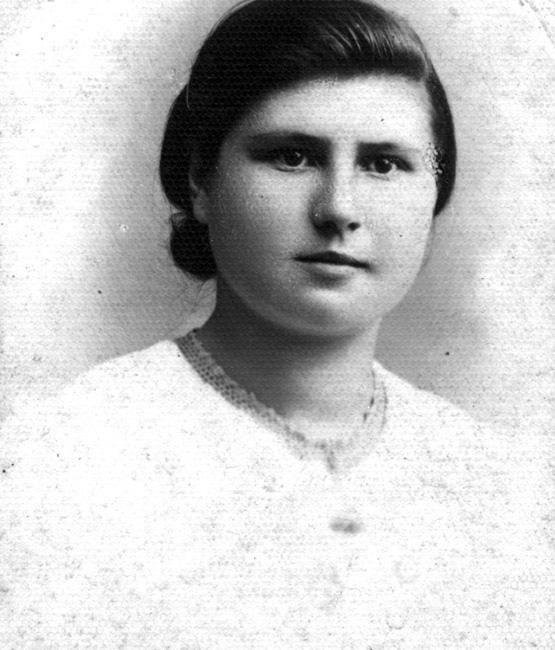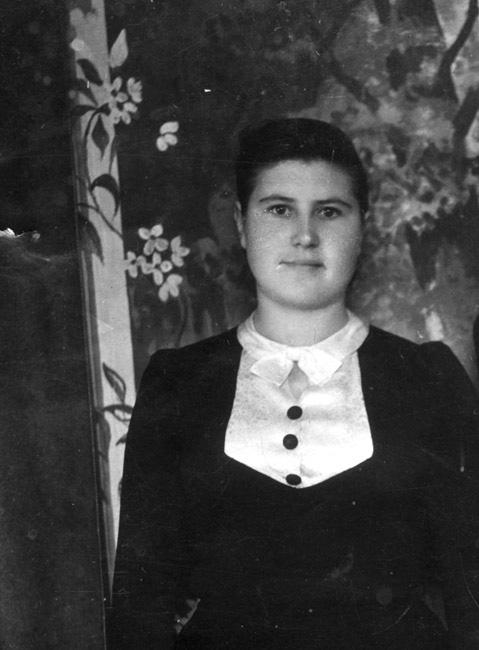Olga Chirun, the daughter of a farming family from the village of Batchi in the county of Kobrin, district of Brest (Polesie), was orphaned in the 1930s. On the eve of the German invasion of the Soviet Union, she was sixteen years old and living in the village, in terrible poverty, with her six-year-old brother.
In 1942, Raisa Polevaya, a Jewish woman whose husband, an army officer, had been killed early in the war, came to Chirun’s front door with her baby daughter Nelli. Polevaya had been through a very hard period, including spending time in prison because she was a wife of a soldier of the Red Army that defended Brest. She had escaped before her Jewish identity was discovered and thus arrived in Batchi, where Chirun dressed her in farmers’ garb and devotedly took care of Poevaya and her daughter.
All of Chirun’s neighbors and relatives knew that she was hiding a Jewish mother and child but no one reported her to the Germans. The danger facing Chirun was acute because her house was located only 500 meters from a railway track next to which German guards were permanently posted. Furthermore, the Germans often carried out house searches and, whenever they did so, Chirun wandered off to the nearby villages with her wards until the danger subsided. Meeting the challege together of the difficulties of day-to-day living strengthened the bond between Chirun and Polevaya and they became good friends. Until the liberation of the area on July 28, 1944, the two of them ran the household together and both took care of younger children. Their friendship lasted for many years after the war.
On January 6, 1997, Yad Vashem recognized Olga Chirun as Righteous Among the Nations.








